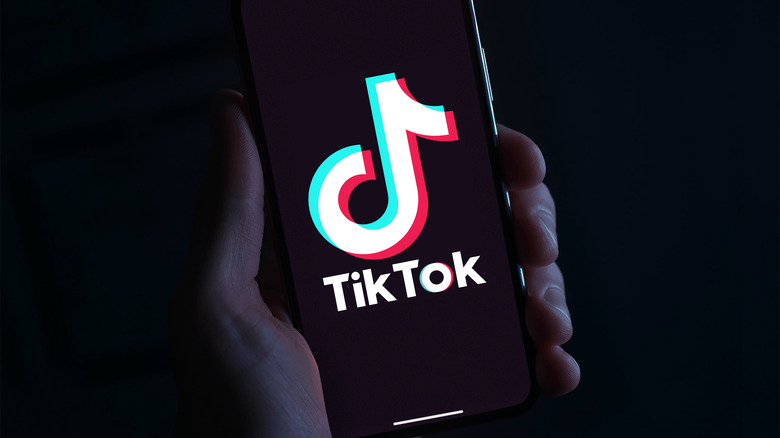How TikTok Challenges May Be Targeting Teens With Unhealthy Food
Fads and challenges have been around for a long time, even before the first online chatroom or even the concept of the Internet was even grasped by the general public. The 1990s had people listening to grunge music in acid-washed jeans and flannel alongside folks who collected Beanie Babies in neon-colored fanny packs. The 1980s had folks watching hair metal bands on MTV or somehow finding ways to incorporate leg warmers into their daily wardrobe. No matter how far back you go, fashion trends, celebrity worship, and people doing crazy things have been a part of mainstream culture for quite some time, and it doesn't look like that trend is slowing down soon.
Of course, just because the idea of following trends is common in society doesn't always mean they're harmless. While food challenges are innocent enough — with some being relatively healthy – there are some that encourage young people to eat or consume unsafe products. In 2017, for example, the "Hot Water Challenge," which involves pranking a person with boiling water, was said to have led to the death of an 8-year-old girl, via Bustle. Another is the infamous "Cinnamon Challenge," in which participants try to swallow spoonfuls of cinnamon, leading to difficulty breathing and, in some cases, death (via Vice). Indeed, there are many dangerous and unsafe competitive trends on social media that can lead to severe injury, death, or other health problems. On the other hand, some challenges make participants prime targets for incredibly unhealthy eating habits.
TikTok teens unknowingly promote unhealthy food
How exactly is a social media app turning teenagers into unofficial spokespeople for junk food brands? According to ABC News, fast food companies can create their own trends around their products, promising rewards if TikTok users perform these challenges. A good example, ABC News reports, involves Burger King choreographing a dance and instructing their followers to perform it at a Burger King restaurant and share it online to receive a $1 Whopper. Influencers then pick up on this challenge and share it with their followers, who will, in turn, hop on the trend. Users get a $1 burger, influencers get views, and Burger King gets more popularity and revenue. BMJ Global Health's report noted that 87% of a major food brand's marketing comes from videos, with another 25% relying on celebrities and influencers.
It is this cycle, some fear, that turns young users into walking advertisements for a brand, promoting not just a company but also romanticizing an unhealthy diet. Nursing CLIO discussed the idea that social media was "feeding" children fast-food advertisements, noting a University of Connecticut study that reported fast food companies spent 5 billion dollars on marketing in 2019 alone. Impressionable children will relate to these fast-food companies and be drawn to consuming their food rather than focusing on healthier choices. While none of this is meant to scare you, it's essential to always remember the effects social media has on you and others around you.

